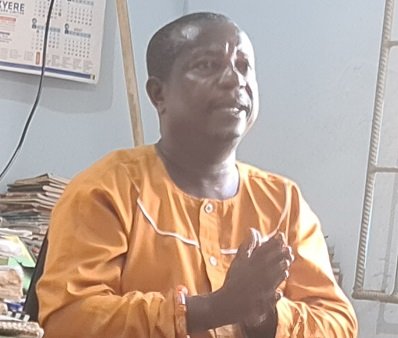News
Slapping, knocking children can damage eardrum – Head of Special School

The Headmaster of the Tetteh Ocloo State School for the Deaf in the Greater Accra Region, Mr. Isaac Arthur has advised parents not to either knock the heads of their children or slap them ostensibly to correct them when they go wrong.
He said such actions were unacceptable because of the possible health implications on them which could be irreversible.
Speaking in an interview with The Spectator on Wednesday, Mr. Arthur observed that in some homes, knocking or slapping children was the frequent means of bringing children to order.
He said what some parents were ignorant of was that, it [slapping and knocking the head of children] could destroy their tympanic membrane (also known as the eardrum) which may not be reversible or be restored.
He, therefore, called for alternative means of correction such as talking to them or giving them unharmful tasks to do so that in an attempt to correct them, they would not be harmed.
He again expressed concern about the fact that some men were quick to abandon their disabled children and put the blame of their condition solely on their mothers.
Mr. Arthur observed that it was unfortunate that many of such children were from single parents, a trend he attributed to ignorance on the part of the men about causes of disability in children.
Mr. Arthur’s timely advice is as a result of his professional background in Special Education and his encounter with children with Special needs over the years coupled with the training he had undertaken relative to persons with disabilities.
The Headmaster mentioned attempted abortion, accidents such as falling or motor accidents, lack of oxygen flow to foetus, poor diets, lack of proper medication, diseases among others as some of the factors contributing to disability of children.
“Men must accept disabled children because they are a gift from God and train them to be the best they can be” he said.
He encouraged parents to take advantage of the various Special Schools in the country, which he said were free of charge, to give their children the best of education for them to also contribute to the development of the country.
From Dzifa Tetteh Tay, Tema